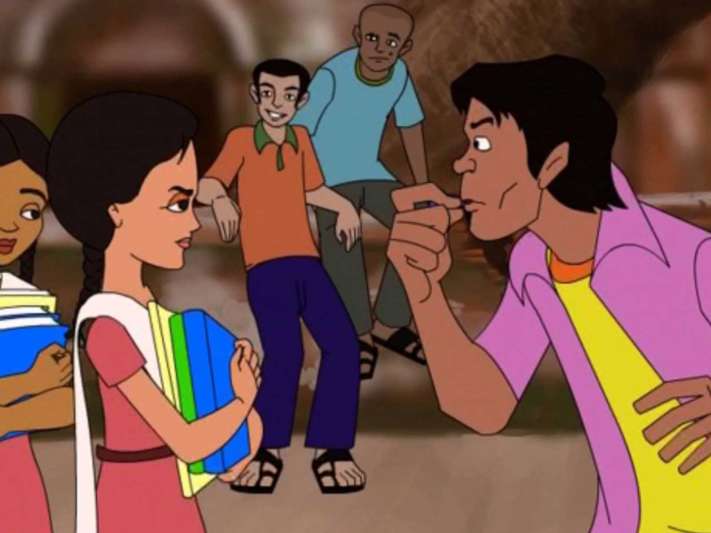His name could be Ravi, Kittu or Rahul. He would either be a college dropout or a student who’s finished his studies and lacks direction. He would walk past a pretty girl and decide that it’s ‘love’ and stalk her till she professes it too. He would drink, smoke, hit and abuse people for random reasons. And through the 3 hours of the film he would lead the story as the good protagonist, the hero we all aspire to be, showing heroism we all aspire to ape.
We all know that movies play a major role in shaping young minds towards the ideals and objectives that make up for a normal adulthood. Using the unique power of entertainment, films influence us subconsciously, and especially impact young minds who are finding their way in the grey areas of what is right versus what is not. And truly, Indian cinema has created thousands of gems that not only entertain, but leave behind the good aftertaste of a powerful message. But unfortunately, a majority of cinema continues to be tasteless, irresponsible and crude.
So, why do these so-called heroes have to be shown with vices and statutory warnings? Is this what we want our future generations to be inspired by? Is it not the responsibility of movie makers to create better heroes? Is it not our duty as viewers to raise our voice against mindless cinema, rather than promote it? Or are we satisfied with the kind of movies that are made, letting it go by in the name of creative cinema? Vizagites opine.
I am against the depiction of heroes with negativities like smoking, drinking and abuse because our society follows the things they watch on screen. This is true not only in movies, but in television serials too. Teenagers especially are fans of the cine-heroes; so whatever the hero does, the teenager tends to do it too, with a lot of pride. That is a trend that shouldn’t be encouraged.
Aruna
I feel that as clean cinema may not be commercially viable, and would miss out the on the B and C class viewers, it is made that way. While I agree that sci-fi and clean family movies rarely come and should be encouraged, these too will require those so called ‘commercial elements’. That said, stalking, teasing or passing comments on girls are not at all acceptable. Teenagers get very attracted to this negative stuff and mistake them to be signs of heroism which they often try to imitate. The directors should voluntarily reduce unnecessary scenes and situations as much as possible. Even the censor board should play a crucial role (not by blurring girls wearing bikini or beeping whatever feels like a swear word) by giving guidelines to the film makers and gradually reducing negative influences.
Mohith Gorli
Some of these elements are at times essential to capture the true sense of the character and the story. So, if it helps build the character of the hero, it’s acceptable to a limit where it is not over done. But this is only for stories based on true life incidents. When a fictional movie is made, it is best to avoid such elements because the main target audience is illiterate and the fan following of stars (especially in south) is so huge that fans try to replicate everything, I repeat, everything the stars do in their movies to make themselves look cool. Actors and movie makers should be more responsible and must take corrective measures to reduce the negative effects of their work. They are always in the eyes of the media and what they do influences many people, so they should be responsible in their actions on and off screen.
Zulfikar Shahpurwala
With recent movies and anti-Romeo squads in places like UP, lifestyles of silver screen’s protagonists’ and their teasing acts have come under the scanner. Stalking against a girl’s will and wish is a definite negative issue. When the flip side consequences are totally ignored in spite of grievous hurt or such, and when it is projected more as a sign of weakness of the receiver than as unreasonable mischief by the protagonist; it gets questionable. As long as the intent, concern and prompt response towards an untoward hurt or overtones is present, such casual teasing could be taken with a pinch of salt. After all, the narratives show patching up and happy endings in the movies.
Dr Gopichand










Discussion about this post